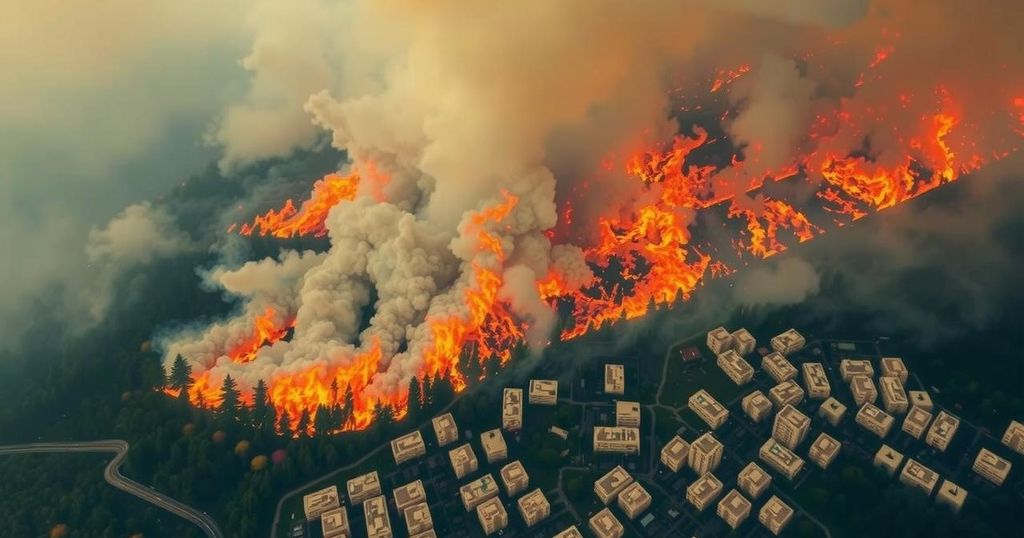Smoke pollution from wildfires, exacerbated by climate change, has led to an estimated additional 12,000 deaths annually worldwide. The mortality linked to wildfire smoke has surged from 669 deaths in the 1990s to over 12,500 in the 2010s. Regions such as South America, Australia, and Europe are experiencing the most significant increases in smoke-related fatalities, whereas South Asia has noted fewer deaths due to higher humidity. The health repercussions of PM2.5 exposure from wildfire smoke are concerning, particularly for those in populations with pre-existing health conditions.
Recent research highlights a significant increase in mortality linked to smoke pollution from wildfires, attributing an estimated 12,000 annual deaths globally to this environmental hazard, primarily exacerbated by climate change. The rise in wildfires, characterized by severe smoke pollution, is notably driven by changing climatic conditions resulting in drier and hotter environments. This study indicates that the fatalities associated with wildfire smoke rose dramatically from 669 in the 1990s to over 12,500 in the 2010s, while overall fire-related pollution deaths surged from approximately 46,401 in the 1960s to nearly 98,748 by the 2010s. Regions like South America, Australia, and Europe reported the most significant increases, whereas areas in South Asia benefited from higher humidity levels, thus witnessing fewer deaths linked to wildfires. Chae Yeon Park, a researcher from the Japanese National Institute of Advanced Industrial Science and Technology, noted that the health risks posed by wildfire smoke are extensive, affecting even densely populated urban areas. A major component of the smoke is PM2.5, tiny particles harmful to human health, particularly for individuals with existing respiratory and cardiovascular issues. It is crucial to understand that even urban populations far removed from fire sites experience detrimental health effects from smoke pollution. As wildfires increasingly account for a considerable share of overall PM2.5 exposure, particularly in the United States, mitigating emissions and improving fire management practices become imperative. Furthermore, the study underscores that climate change is not only intensifying wildfires but also poses a growing public health threat across the globe. The intricate interplay between climate-induced factors and wildfire incidence thus calls for comprehensive strategies to reduce emissions and manage fire risks.
The research connects rising deaths from wildfire smoke to the impacts of climate change, which promotes naturally occurring conditions that lead to more frequent and severe wildfires. Wildfires contribute substantially to air pollution through the release of hazardous particulate matter known as PM2.5, which has established links to serious health hazards, including premature mortality and exacerbation of pre-existing health conditions such as asthma and heart disease. The geographic disparities in the effects of wildfire smoke are also important to note, as the conditions leading to increased fatalities vary significantly across different global regions.
The increasing toll of smoke pollution due to wildfires, now attributed to climate change, presents a profound public health challenge. With 12,000 additional annual deaths linked to smoke inhalation, it is evident that both wildfire management and climate adaptation strategies must be prioritized globally. By addressing these factors, we can mitigate the health impacts associated with wildfire smoke, particularly in vulnerable populations.
Original Source: www.independent.co.uk






